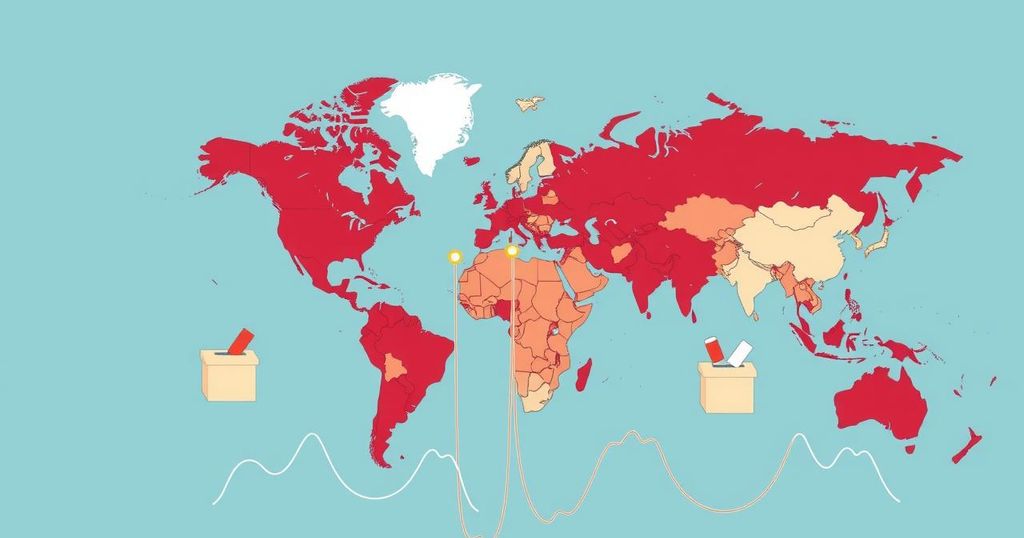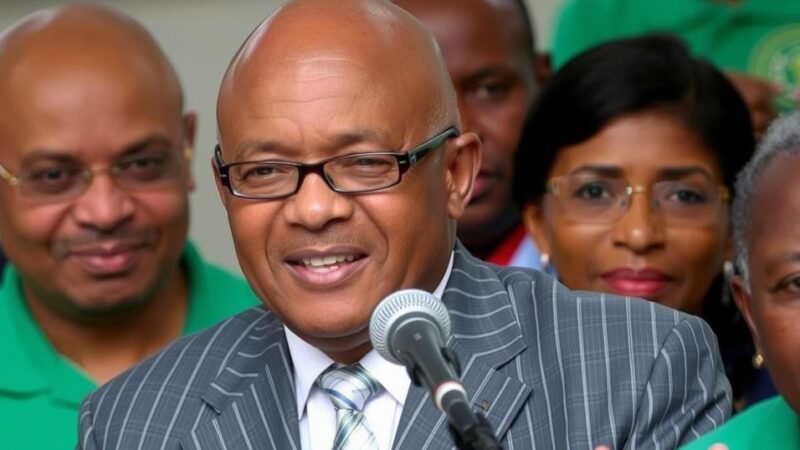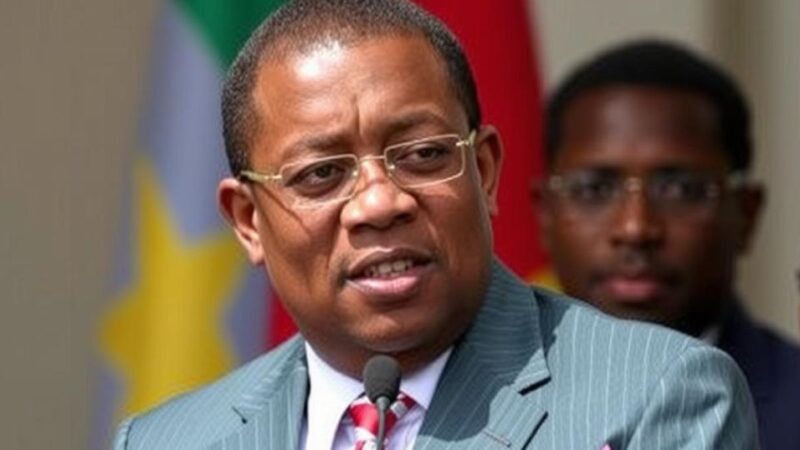The year 2024 marked significant global electoral engagement, with roughly four billion people voting. Key elections led to the political resurgence of Donald Trump, the formation of a coalition government in India, and political turmoil in Europe, especially France and Germany. Latin America saw the election of Claudia Sheinbaum in Mexico against a backdrop of ongoing challenges in Venezuela. South Africa’s ANC party suffered its first parliamentary setback, indicating a changing political landscape.
The year 2024 witnessed unprecedented democratic engagement across the globe, as roughly four billion individuals participated in elections, emphasizing the significance of this year’s political events. Several nations experienced dramatic political shifts, with ruling parties in South Africa and India facing setbacks attributed to allegations of corruption and a decline in democratic values. Meanwhile, in Europe, rising far-right movements disrupted traditional political landscapes, culminating in governmental changes in major economies such as France and Germany. The United States marked the return of Donald Trump to the presidency, a notable political revival following his controversial previous term.
In the United States, Donald Trump’s reelection on November 5 represented a remarkable political resurgence, winning decisively against a backdrop of discontent with the economy and rising anti-immigration sentiment. Analysts indicate that Trump’s campaign successfully resonated with non-college educated voters, traditionally Democratic supporters. As the new administration assumes power, it is anticipated Trump will effectively navigate governmental complexities, allowing for a more assertive policy push.
In India, Prime Minister Narendra Modi’s party faced unexpected challenges, resulting in a coalition government configuration. This political shift may introduce difficulties for Modi as he pursues contentious policies characterized by a focus on Hindu nationalism. His administration continues to engage in an independent foreign policy, maintaining ties with both Russia and the United States amid growing tensions with China.
Indonesia’s electoral process saw the ex-military leader Prabowo Subianto ascend despite concerns regarding electoral integrity. Prabowo’s previous association with a past authoritarian regime raises questions about potential foreign investment and geopolitical alignment, especially in light of heightened U.S.-China rivalry under Trump’s administration.
Europe also encountered significant instability, as France experienced political fragmentation following Macron’s snap election. The subsequent failure to achieve a stable government has raised concerns regarding European unity and the pursuit of critical agendas, including support for Ukraine. Similarly, the United Kingdom’s Labour Party emerged victoriously, initiating a potential reevaluation of its post-Brexit relationship with the European Union, despite enduring public dissatisfaction with new leadership.
In Latin America, the political landscape exhibited contrasting trends. Mexico elected its first female president, Claudia Sheinbaum, continuing a leftist policy agenda. Conversely, Venezuela saw President Nicolás Maduro claim victory amidst widely criticized electoral conditions, perpetuating economic distress and societal unrest. South Africa’s political dynamics shifted as the long-ruling ANC party lost its parliamentary majority, a pivotal moment for governance amid ongoing corruption and economic challenges.
The article discusses the key elections that occurred globally in 2024, illustrating their impact on international relations and domestic policies. Highlighting the elections from notable countries such as the United States, India, Indonesia, European nations, and Latin America, the article underscores political trends including populism, democratic backsliding, and shifts in governance. This context allows for a comprehensive understanding of how various political realities have evolved through elections and their potential ramifications on global geopolitics.
In conclusion, the elections of 2024 have profoundly influenced the political trajectory of numerous nations, prompting shifts in leadership and ideologies. The return of Donald Trump in the U.S., the coalition government in India, and the political instability in France and Germany signify pivotal transformations. As these developments unfold, their repercussions on international relations, economic policies, and societal issues will be areas of significant observation and concern.
Original Source: www.semafor.com







